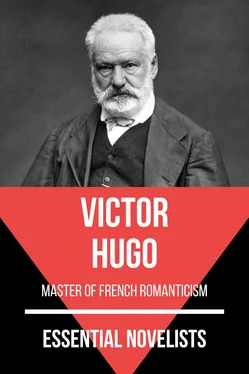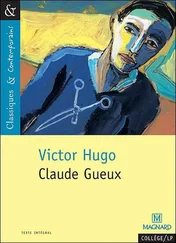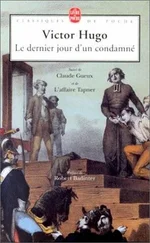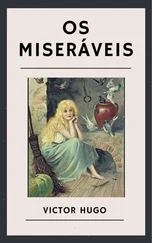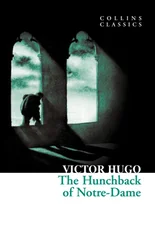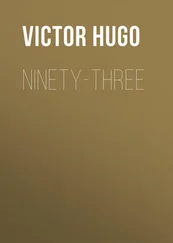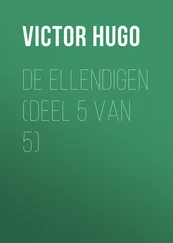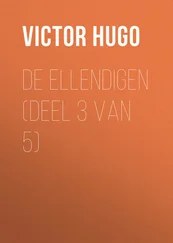Cosette’s thin and sickly face was vaguely outlined by the livid light in the sky.
“What is your name?” said the man.
“Cosette.”
The man seemed to have received an electric shock. He looked at her once more; then he removed his hands from Cosette’s shoulders, seized the bucket, and set out again.
After a moment he inquired:—
“Where do you live, little one?”
“At Montfermeil, if you know where that is.”
“That is where we are going?”
“Yes, sir.”
He paused; then began again:—
“Who sent you at such an hour to get water in the forest?”
“It was Madame Thénardier.”
The man resumed, in a voice which he strove to render indifferent, but in which there was, nevertheless, a singular tremor:—
“What does your Madame Thénardier do?”
“She is my mistress,” said the child. “She keeps the inn.”
“The inn?” said the man. “Well, I am going to lodge there to-night. Show me the way.”
“We are on the way there,” said the child.
The man walked tolerably fast. Cosette followed him without difficulty. She no longer felt any fatigue. From time to time she raised her eyes towards the man, with a sort of tranquillity and an indescribable confidence. She had never been taught to turn to Providence and to pray; nevertheless, she felt within her something which resembled hope and joy, and which mounted towards heaven.
Several minutes elapsed. The man resumed:—
“Is there no servant in Madame Thénardier’s house?”
“No, sir.”
“Are you alone there?”
“Yes, sir.”
Another pause ensued. Cosette lifted up her voice:—
“That is to say, there are two little girls.”
“What little girls?”
“Ponine and Zelma.”
This was the way the child simplified the romantic names so dear to the female Thénardier.
“Who are Ponine and Zelma?”
“They are Madame Thénardier’s young ladies; her daughters, as you would say.”
“And what do those girls do?”
“Oh!” said the child, “they have beautiful dolls; things with gold in them, all full of affairs. They play; they amuse themselves.”
“All day long?”
“Yes, sir.”
“And you?”
“I? I work.”
“All day long?”
The child raised her great eyes, in which hung a tear, which was not visible because of the darkness, and replied gently:—
“Yes, sir.”
After an interval of silence she went on:—
“Sometimes, when I have finished my work and they let me, I amuse myself, too.”
“How do you amuse yourself?”
“In the best way I can. They let me alone; but I have not many playthings. Ponine and Zelma will not let me play with their dolls. I have only a little lead sword, no longer than that.”
The child held up her tiny finger.
“And it will not cut?”
“Yes, sir,” said the child; “it cuts salad and the heads of flies.”
They reached the village. Cosette guided the stranger through the streets. They passed the bakeshop, but Cosette did not think of the bread which she had been ordered to fetch. The man had ceased to ply her with questions, and now preserved a gloomy silence.
When they had left the church behind them, the man, on perceiving all the open-air booths, asked Cosette:—
“So there is a fair going on here?”
“No, sir; it is Christmas.”
As they approached the tavern, Cosette timidly touched his arm:—
“Monsieur?”
“What, my child?”
“We are quite near the house.”
“Well?”
“Will you let me take my bucket now?”
“Why?”
“If Madame sees that some one has carried it for me, she will beat me.”
The man handed her the bucket. An instant later they were at the tavern door.
Chapter VIII
The Unpleasantness Of Receiving Into One’s House A Poor Man Who May Be A Rich Man
––––––––

COSETTE COULD NOT REFRAIN from casting a sidelong glance at the big doll, which was still displayed at the toy-merchant’s; then she knocked. The door opened. The Thénardier appeared with a candle in her hand.
“Ah! so it’s you, you little wretch! good mercy, but you’ve taken your time! The hussy has been amusing herself!”
“Madame,” said Cosette, trembling all over, “here’s a gentleman who wants a lodging.”
The Thénardier speedily replaced her gruff air by her amiable grimace, a change of aspect common to tavern-keepers, and eagerly sought the newcomer with her eyes.
“This is the gentleman?” said she.
“Yes, Madame,” replied the man, raising his hand to his hat.
Wealthy travellers are not so polite. This gesture, and an inspection of the stranger’s costume and baggage, which the Thénardier passed in review with one glance, caused the amiable grimace to vanish, and the gruff mien to reappear. She resumed dryly:—
“Enter, my good man.”
The “good man” entered. The Thénardier cast a second glance at him, paid particular attention to his frock-coat, which was absolutely threadbare, and to his hat, which was a little battered, and, tossing her head, wrinkling her nose, and screwing up her eyes, she consulted her husband, who was still drinking with the carters. The husband replied by that imperceptible movement of the forefinger, which, backed up by an inflation of the lips, signifies in such cases: A regular beggar. Thereupon, the Thénardier exclaimed:—
“Ah! see here, my good man; I am very sorry, but I have no room left.”
“Put me where you like,” said the man; “in the attic, in the stable. I will pay as though I occupied a room.”
“Forty sous.”
“Forty sous; agreed.”
“Very well, then!”
“Forty sous!” said a carter, in a low tone, to the Thénardier woman; “why, the charge is only twenty sous!”
“It is forty in his case,” retorted the Thénardier, in the same tone. “I don’t lodge poor folks for less.”
“That’s true,” added her husband, gently; “it ruins a house to have such people in it.”
In the meantime, the man, laying his bundle and his cudgel on a bench, had seated himself at a table, on which Cosette made haste to place a bottle of wine and a glass. The merchant who had demanded the bucket of water took it to his horse himself. Cosette resumed her place under the kitchen table, and her knitting.
The man, who had barely moistened his lips in the wine which he had poured out for himself, observed the child with peculiar attention.
Cosette was ugly. If she had been happy, she might have been pretty. We have already given a sketch of that sombre little figure. Cosette was thin and pale; she was nearly eight years old, but she seemed to be hardly six. Her large eyes, sunken in a sort of shadow, were almost put out with weeping. The corners of her mouth had that curve of habitual anguish which is seen in condemned persons and desperately sick people. Her hands were, as her mother had divined, “ruined with chilblains.” The fire which illuminated her at that moment brought into relief all the angles of her bones, and rendered her thinness frightfully apparent. As she was always shivering, she had acquired the habit of pressing her knees one against the other. Her entire clothing was but a rag which would have inspired pity in summer, and which inspired horror in winter. All she had on was hole-ridden linen, not a scrap of woollen. Her skin was visible here and there and everywhere black and blue spots could be descried, which marked the places where the Thénardier woman had touched her. Her naked legs were thin and red. The hollows in her neck were enough to make one weep. This child’s whole person, her mien, her attitude, the sound of her voice, the intervals which she allowed to elapse between one word and the next, her glance, her silence, her slightest gesture, expressed and betrayed one sole idea,—fear.
Читать дальше
